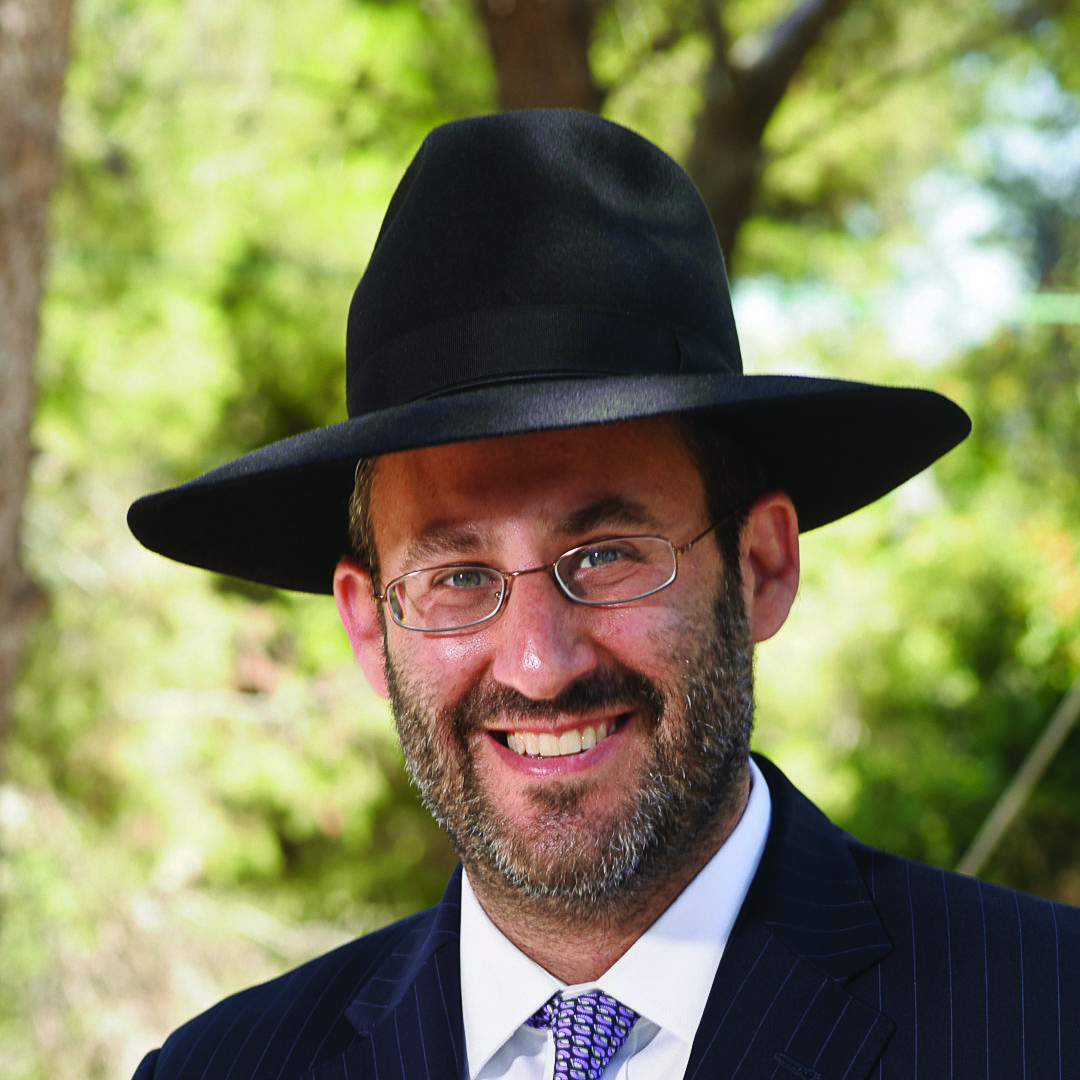Adviceline: Issue 540

Things shift, people change. Don’t take a snapshot of today, and assume the future will look the same.

However, the issue is my parents. Because we’re choosing to raise our family slightly differently than they did theirs, they have a hard time accepting our choices. Honestly, I’m not impressed with the way my siblings turned out. They’re all frum in the general sense, but they lack depth of appreciation for Torah and mitzvos, and are focused on material pursuits, technology, etc. When my parents are honest, they express that it bothers them (though their Yiddishkeit isn’t much deeper), but when discussing our choices, their words imply: “Why can’t you just be like them?”
It hurts to know that my parents don’t approve of things we do — things that only make us better Jews. I know in my head that we’re doing this for a greater purpose and not to gain anyone’s approval or acceptance, but in my heart it still bothers me very much. Speaking to them hasn’t gotten me very far, as they’ve come across as unwilling or incapable of grasping concepts beyond their scope.
I don’t want to share with my husband all the conversations I have with my parents because I don’t want him to lose his respect for them, so I have no one to turn to about this matter. And it comes up quite a bit. For example, now that our children are ready for school, my father is pressuring me to put our son into the yeshivah his sons attended, one that’s part of his community but does not necessarily focus on what we see as most important in Yiddishkeit. To them, it’s all about belonging to a “community,” while to me other things, like a relationship to Hashem from a place of emes, means much more.
Knowing their background, and thanks to the emotional work I’ve done, I understand that my parents’ goals aren’t coming from the healthiest place, but rather a need to fit in. I know that as a Jewish woman I have a greater obligation to follow my husband’s way than my parents’, but how can I come out of this emotionally intact and still respect my parents for who they are? How can I continue respecting my husband when my parents have no problem talking to me about his faults and how I shouldn’t do what he thinks is right?
Rabbi Dovid Cohen
There’s a universal need for approval and validation from a parent. It’s something we want from the youngest age, and it continues even after we marry and become parents ourselves. It’s very painful not to have that approval, particularly in an area of life that’s so crucial: your Yiddeshkeit.
Many of our parents grew up in a different generation than we did, and their ability to convey positivity and respect wasn’t always well-developed. It’s easier, and possibly more natural, for them to be critical. Patience is a virtue here. You realize that your parents aren’t so thrilled with how your siblings turned out, and yet they want you to follow the same path because it’s the path they chose. What I’ve often seen in such situations it that, over time, a parent no longer sees a child’s deeper commitment to Yiddeshkeit as a threat or rejection of their parenting, but rather as something that arose from the foundation they laid. It may take a while for your parents to take pride in you, but there’s a good chance that it will happen.
In addition, realize that parents want their children to be happy. If your parents see that you’re truly happy and energized by the path you’ve taken, it can have a profound effect upon their feelings towards those choices.
In order for them to come towards you, it’s crucial for you to show them affection, love, and appreciation. Make your parents and siblings feel good about who they are. I’ve seen many families where there were great differences in levels of religiosity between the family members, but kmayim panim el panim, the more the frummer members of the family had an ayin tovah and genuinely respected their less committed relatives, the more those relatives were able to respect them. You need to model warm, accepting behavior; hopefully your parents will come around and reciprocate.
When it comes to your parents bad-mouthing your husband, you can tell them nicely and respectfully that when they say negative things about your husband, it’s harmful to your marriage, and ask them to stop. If you don’t feel courageous enough to take the frontal approach, work on simply ignoring the negative things they say.
It would be a good idea to encourage your husband to do positive things for your parents. No need to tell him the background, you can just say something like, “I’d like us to try to strengthen our relationship with our parents. I’m going to work on being in touch with your parents more and finding positive things to do for them. Maybe you can do the same with my parents.”
Chazal tell us that lefum tzara agrah; take chizzuk in the fact that the greater the challenge, the greater the reward. It’s hard to have the lack of validation, the badgering, the belittling of your husband. Hashem knows about all these hardships, and in His eyes, your mesiras nefesh for what you believe in is very precious. You should also reach out to your moireh derech, and get chizzuk from them.
Things shift, people change. Don’t take a snapshot of today, and assume the future will look the same. Realize that with hard work and positive overtures on your part, the dynamic between you and your parents can radically shift. May you soon enjoy a wonderful, respectful relationship with them.
Rabbi Dovid M. Cohen is Director of Synagogues for New York and Director of Community Outreach for Yachad, both roles at the Orthodox Union. He maintains a private counseling practice, and is the author of We’re Almost There — Living with Patience, Perseverance and Purpose, (Mosaica Press, 2016).
Mrs. Elisheva Kaminetsky
Many people have grappled with this; it’s a scenario that’s repeated itself through the generation. Rav Wolbe speaks about the fact that the world was created for the Jewish nation, yet it was also created one person at a time, as opposed to a whole nation in one go. This demonstrates that each person is unique, with his own special mission and contribution to the world.
These differences among people can often lead to tension. Our job is to create an atmosphere of respect similar to the one the shevatim had when Yaakov gave his tzavaah on his deathbed. “Heasfu… hikavtzu,” he told his sons. Just before he highlighted the difference among each of his children, he exhorted them to gather around him together, united.
The world was created with the koach habechirah. Rav Hirsch reminds us that the name adam comes from the same root as “adamah l’Elyon,” we have a resemblance to Hashem since we have the power of choice. The choices we make accentuate our differences. It’s important to have respect for people even if they have different perspectives and lifestyles.
It’s hard for parents when their children make different choices than they did. It can feel like a rejection of the upbringing they gave them, and parents may take that as a condemnation of their parenting and their personal choices. Of course, as adults, not only do you have the right to make your own decision, but it’s what Hashem wants you to do — utilize your bechirah. Parents should see their children’s personal choices as an expression of their independence and individuality. Our goal as parents is to raise children to contribute in their own unique way.
Practically speaking, you can’t change the perspective of others, but you can change your own perspective. We all know that we owe our parents an enormous amount of hakaras hatov. Interestingly, the literal translation is not gratitude, but recognition of good. There’s no phrase “hakaras hara — recognizing bad” because that comes to us naturally. We need to work on finding and focusing on the good.
You may not feel that your parents live deep, spiritual lives, and they may feel they have a strong need to fit in, but what values do they have that you do respect? What is their unique contribution to this world in general, and to your life in particular? Focus on that, and be careful not to relate to them in a critical way.
From your question, it seems like your parents may not always recognize this concept of individual choice and just wish that everyone would be the same — “Why can’t you just be like everyone else?” You need to demonstrate that divergent opinions can exist without causing a see-saw effect where one person’s different choice is a put down to the other person. As I said, you can’t change them, but when people feel respected they have an easier time respecting you.
You and your husband need to make choices that are right for you and feel proud of those steps, despite the lack of familial support. Allow the internal choices you have made to offer you the validation you need, while respecting and accepting that others have made different choices.
Rebbetzin Elisheva Kaminetsky has been educating teens for over 25 years. She is a teacher and administrator at the Stella K Abraham High School (SKA/HALB) in Woodmere, NY. She is also a kallah teacher and popular lecturer.
Mrs. Sheila Segal
It’s wonderful that you and your husband are on the same page regarding how you want to raise your children. When both parents have the same goal and share the same hashkafah, chinuch is far easier. I also commend you for wanting to develop a relationship with Hashem and for working on yourself to grow and mature in your avodas Hashem.
It seems that what’s disturbing you most is that instead of receiving validation from your parents for your greater level of Yiddishkeit, you’re being criticized. Every child, at every age, wants to receive praise from his parents, confirmation that they believe he’s doing well. It’s difficult to be in a situation in which parents disapprove and show dissatisfaction with how we’re running our lives. Particularly when we think we’re doing a good job.
You’ve been trying to speak to your parents, to explain your derech, without much success. Whether they’re unwilling or unable to accept your viewpoint, this is the reality. Another troubling issue is that your parents are speaking negatively of your husband and trying to win you over to their way of thinking, which runs counter to what you and your husband believe in.
You seem to be caught in the middle, trying to be both the obedient daughter and the loyal wife. You mention wanting to respect your parents for who they are, and at the same time, wanting to keep your respect for your husband intact in the face of your parents’ criticism.
It’s important to remember that your marriage is your priority, and listening to negative comments about your spouse is extremely damaging for your relationship. When a couple marries, their task is to move from “me” to “we.” They need to become a unit, with respect and loyalty to each other paramount. You note that as a Jewish woman, your obligation is to follow your husband’s way. You’re 100% correct.
I feel that in a situation where a parent unfortunately makes disparaging remarks about a child’s husband, the wife must support her spouse. Even when you wisely don’t share the negative remarks with your husband, the insidious comments are still harmful to your marriage. Couples must give each other emotional support and come to one another’s defense. Sometimes that means letting parents know clearly that you will not listen to any condemnation of your husband. You can say something like, “I appreciate your concern Mom and Dad, but I cannot listen to you speak that way about Dov. It’s harmful to my marriage when you belittle my husband.”
You question how you can come out of this emotionally intact. You still have an obligation to speak respectfully to your parents. I’m sure there’s much about them you can respect. Though you may feel that their focus in Yiddishkeit is more on fitting in and being part of the community, whereas you’ve worked on yourself to create a deeper spiritual connection, you can concentrate on their good qualities and positive middos. Emphasizing their strengths and looking at the larger picture can help you preserve the peace.
As far as respecting your husband, I believe that setting clear boundaries with your parents and limiting negative discussion of your husband will be helpful. In addition, as Sara Chana Radcliffe mentions in her book, Aizer K’negdo, a woman must not fall into the trap of thinking that respect is an all or nothing proposition. There may be things a wife does not respect about her spouse, but there are many more areas in which she can respect him.
Working on and developing the middah of hakaras hatov can be enormously beneficial as well, enhancing the relationship with both parents and spouse. Focusing on a person’s good qualities increases our positive feelings towards that person. A practical tool is writing a gratitude list. I’ve suggested this exercise to many people, and have gotten enthusiastic feedback about the remarkable results.
There are two main ways you can do this. You can make the list general — anything good that happened to you that day. Or, you can utilize it as a tool to improve a specific relationship, in which case you’d list any act the other person did that you appreciated. You’ll be astonished by all the kindnesses you receive, and this can create a wonderfully positive attitude towards that person, which has the power to dramatically improve your relationship.
Your question speaks around your concern over your children’s chinuch. Working on gratitude and creating more loving relationships will hopefully enhance your children’s chinuch, and impact them powerfully. Seeing how you interact in a respectful, loving way with your parents, despite your hashkafic differences, will be a compelling lesson in kibbud av v’eim.
In addition, a key factor in successful chinuch is shalom bayis between parents. I believe the most important step you can take in that direction is strengthening your marriage through increased acts of respect. Respect is the foundation of a marriage. When that’s strong, you can build onto that, by adding layers of loyalty/trust and increasing love. When you’ll have a strong emotional connection and each side will feel secure in the relationship, your marriage will have a solid foundation, and that will strengthen your entire home.
Mrs. Sheila Segal is an Israel-based life coach, specializing in dating and relationships. She teaches in several seminaries and lectures for several kiruv organizations.
(Originally featured in Family First, Issue 540)
Oops! We could not locate your form.











